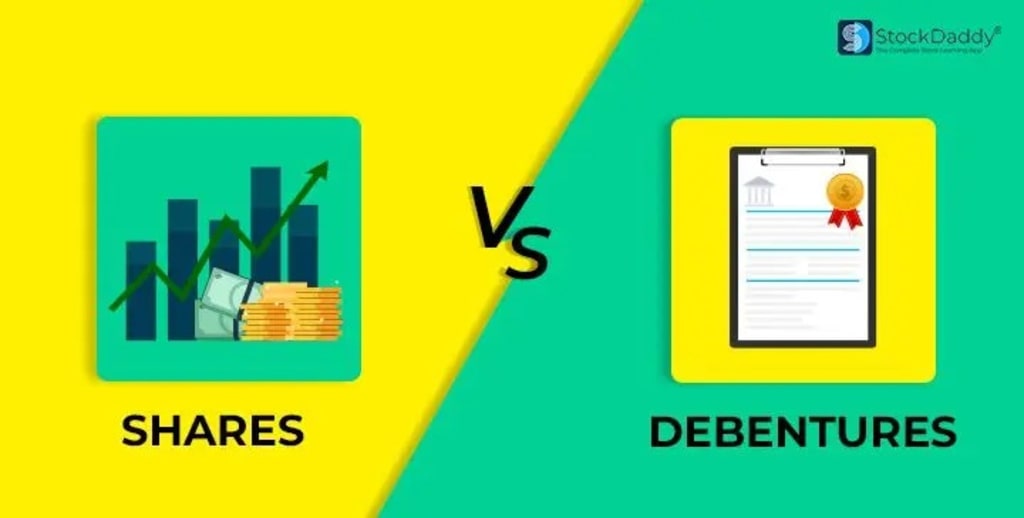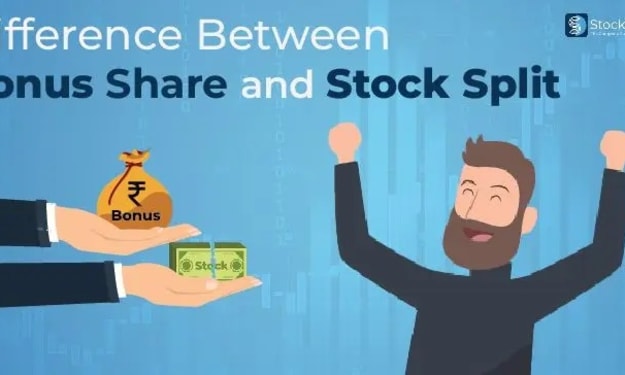Difference Between Shares and Debentures
Companies issue shares and debentures based on their needs and requirements. Both these modes of raising funds are different in nature and attract different kinds of investors. Those investing in shares are comparatively high-risk investors and therefore have higher rewards at stake whereas those investing in debentures take a safer option and therefore have limited risk. If you want to know the Difference Between Shares And Debentures you can read our blog which will help you to clear your doubts.

A firm needs capital at different stages of its growth, and capital is crucial in the formation of a corporation. A corporation needs exponentially more capital as it grows and expands in size. Companies can raise cash via a variety of means, with shares and debentures being two of the most well-known options. Let's examine the difference between shares and debentures further in detail, as well as how they operate:
What are the Shares of the company?
Each portion of a corporation is referred to as a share when the whole value of the company is divided into equal portions. The business separates its ownership into equal shares and offers these on the primary market for public purchase in order to raise money from the general public.
The value of each share is known as the face value of the share when the company divides ownership into equal portions. When the public buys shares in a company, it is implied that they are purchasing ownership in the company and its profits in the proportion of total percentage of shares of the company they have bought.
Types of Shares
There are mainly two types of shares:
1). Equity shares
A) Since equity shares are securities issued under the firm's share capital, the funds raised through the issuance of equity shares are funds belonging to the company.
B) Equity shares are a crucial tool for raising long-term capital, and businesses typically issue them when they need a sizable sum of money over a lengthy period of time.
C) Due to the fact that they do not possess any preferential rights, unlike preference shareholders, equity shareholders are also known as common shareholders.
2). Preference shares
Shares with a preferential right in relation to dividend payments and in the event of a liquidation are referred to as preference shares. These rights are the main benefits preference shareholders enjoy over equity owners.
Due to the fact that they combine the characteristics of debentures and equity stockholders, preference shares are also referred to as hybrid shares. The balance sheet's Preference share capital category includes all monies raised through the issuance of preference shares. Preference share capital in the capital structure is mostly used for corporate expansion or day-to-day operations.
What are Debentures in Stock Market?
As we now know, businesses can raise funds without diluting their ownership by issuing debentures. This is similar to how firms sell ownership in their companies by issuing shares in the market.
Companies sell debentures to the general public on the open market in exchange for a certificate stating the debenture's maturity period, the point at which the principal will be returned to the holder, and the annual interest rate that holders will receive up until the debenture matures. It is comparable to a loan that the public has given to the issuer.
Types of Debentures
Debentures are issued by companies in a variety of forms depending on the demands and specifications of the company. Debentures come in various forms, including:
1). Secured and Unsecured debentures
2). Registered and Bearer debentures
3). Convertible and Non-Convertible debentures
4). Redeemable and Irredeemable debentures
5). Specific Coupon Rate debentures
6). Zero Coupon Rate debentures
Differences between Shares and Debentures
Let’s deep-dive in detail to find out the differences between shares and debentures:
1. Meaning
The overall market value of the business is divided into smaller, equally valued pieces known as shares.
Debentures are a type of debt unit that businesses issue to raise money.
2. Income Source
Profits for equity investors are mostly derived from capital gains or business actions like stock splits or bonus issues.
The interest that holders of debentures get on their investment is their main source of income.
Shares are dangerous since they are exchanged on exchanges and their prices change according to the turbulence of the market.
As they are guaranteed by an agreement and some are even backed by assets, debentures are less hazardous than shares because the holders of them have a guarantee of repayment.
4. Voting Rights
Shareholders in a firm have voting rights and can thereby influence how the company is run.
Debenture holders are not allowed to vote or meddle in the business affairs of the corporation.
5. Conversion
Shares cannot be converted into debentures.
Companies can convert convertible debentures into company shares if they issue them.
About the Creator
Anubhav rai
StockDaddy is India's leading stock learning platform, making it possible for users around the nation to grasp the stock market skills with an ease of choices.






Comments
There are no comments for this story
Be the first to respond and start the conversation.